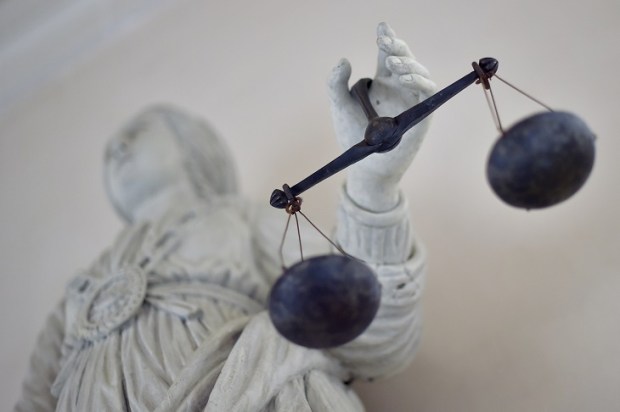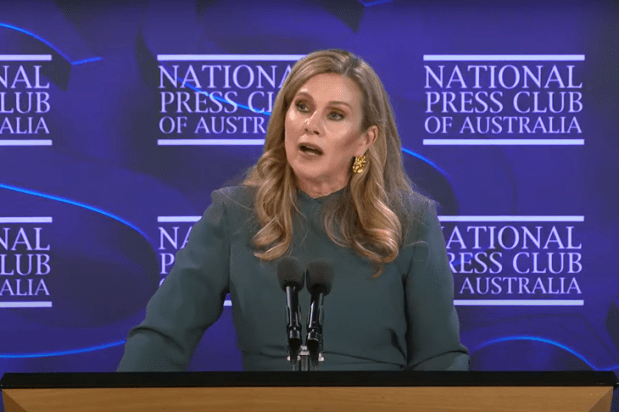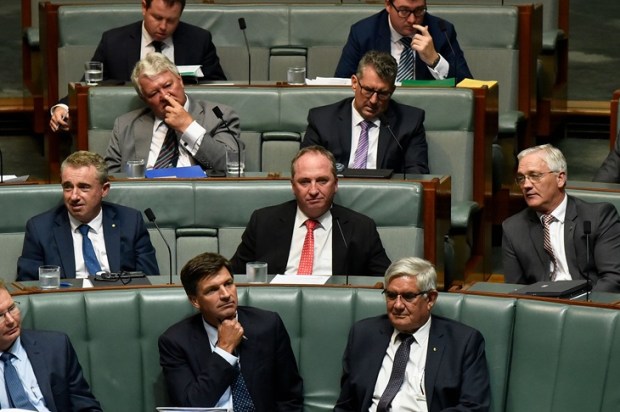Janet Albrechtsen has written an informative and powerful piece on the infiltration of Indigenous ideology in Australia’s law schools. She reported that the University of Melbourne is seeking to appoint a director of its Law School’s Indigenous Law and Justice Hub. The advertisement indicates that only Indigenous people may apply for the position and that the successful applicant’s job will be ‘to indigenise’ and ‘to decolonise’ the law curriculum. These abominable verbs reveal that the University, rather than seeking to offer a classical legal education is, in our view, interested in using the law school as a tool for social transformation. She also points out that ‘universities are using special exemptions from the equal opportunity laws to get taxpayers to fund jobs in law schools that have more to do with politics than law.’
Talking about ‘Indigenous Law’, it is important here to remind our readers that Australia need not be ashamed of its legal heritage. Significantly, at the time of British settlement, the Aboriginal communities had their own customary rules which were inseparable from their animistic culture. However, the Aborigines the settlers encountered were not living in a nation-state. As noted by Paul Kelly, ‘They were a collection of hundreds of tribes speaking different languages, devoid of collective political purpose or leadership, often at war at each other and without the structures to allow sovereign negotiations or dealings.’ And since law and religion are intimately intertwined with these Aboriginal communities, any attempt to identify segments of Aboriginal life as somehow ‘legal’ would result not only in the establishment of religion, which is constitutionally prohibited in Australia, but also in the imposition of alien categories of thought on our legal system.
In her article, Albrechtsen also discusses other examples of this transformative mindset which potentially destroys the legitimacy of Australian law schools, for example, the requirement that students in their essays at the Macquarie law school write a generous acknowledgement of country statement as part of their examination (since rejected by the University’s leadership), and the alleged berating of University of Queensland law students who walked out of a law foundations lecture that offers Aboriginal perspectives (since considered by the University). No doubt, there are many other examples, less public but equally destructive of students’ expectation to receive a non-political and unbiased legal education.
These developments, well-known to these authors who are legal academics, have discredited law schools in Australia and raise serious issues relating to the quality of Australian legal education. First, ‘It is far from clear why “Indigenous law” should be a core subject for the simple reason that Australians, regardless of race, religion, gender, and other traits, are governed equally by Australian laws, meaning the common law and legislation enacted by our state, territory, and federal parliaments,’ writes Albrechtsen.
Second, why do university administrators and academics lack the courage to abandon these practices? Is it because they are timid and afraid of losing their taxpayer-funded jobs or benefits such as sabbatical leave? Their inability or unwillingness to meaningfully address these issues may also be a consequence of the incorporation into employment contracts of disparagement clauses which prohibit staff members, both serving and retired, from criticising Indigenous policies and practices, or tarnishing the image or reputation of their employer institutions. Although disparagement clauses are violations of the ubiquitous Free Speech Codes so prevalent in our universities, they are nevertheless frequently incorporated in employment contracts in the wider Australian market. Albrechtsen asks whether academic freedom is ‘…being reinterpreted to mean the freedom to dispense politics in the classroom, with no room for dissent?’
The Melbourne example, reported on by Albrechtsen, reveals the existence of a leftist affirmative action agenda that focuses on ‘positive discrimination’ at the workplace and other places of social interaction. Affirmative action policies involve profound questions related to matters of social equality and fairness, including the issue of whether it is ever justifiable or permissible to submerge individuals into groups, the membership of which is amorphous, and subject them to partisan prophylactic politics which may even harm their interests. As for policies that specifically provide for preferential hiring of Indigenous Australians, such policies are an insult to those Indigenous people who have succeeded in their chosen profession based on their own individual qualities.
The successful 1967 referendum, which empowered the Federal Parliament to make laws for ‘the people of any race for whom it is deemed necessary to make special laws’ raised a general expectation that Australia would finally become a colour-blind society. In a colour-blind society, the distribution of societal burdens and benefits would not depend on a person’s race – an involuntary characteristic over which people have no control. Because of the 1967 referendum, the Parliament has the power to adopt legislation which removes impediments to ensure that members of any race become full members of the polity. The newly acquired powers of the Parliament would cement the principle of ‘political equality’ and ‘equal citizenship’ in the political DNA of Australia. As such, it is a worthy principle, implementation of which enhances the equal treatment of all members of society and confirms that, from a political point of view, all citizens are entitled to equal respect and standing.
However, the current implementation of affirmative action in an employment context, coupled with growing Indigenous advocacy, reveal that a colour-blind society is merely a lofty aspiration, easily punctured or extinguished by the ruling illiberal elites, who advocate for a more radical form of equality of results or outcome. In particular, the alleged use of law schools to exploit differences between racial groups, and to undermine the Western foundations of our legal system, perpetuates the existence of discrimination in Australia. In our view, this contributes to Australia becoming a racist country where burdens and benefits are distributed based on characteristics that disregard merit but have everything to do with political expediency.
Regrettably, most Australian law schools have completely capitulated to the virulently anti-Western propaganda of the Woke activists. These ideologues are devoid of true academic rigour but increasingly control what is taught in our academic departments, even influencing faculty recruitment, where preference is invariably given to women and minority groups. Consequently, ‘speech codes’ and ‘sensitivity training’ severely limit what can be said in our law schools, and punishments are imposed on anyone causing ‘offence’. Furthermore, law schools are constantly lowering academic standards in hiring to be politically correct. This necessarily lowers the quality of legal education offered to students and the standards of legal academic publication.
This sorry situation calls for the establishment of law schools that offer a classical model of legal education, which provides students with the critical skills to meet the demands of the world. Such an education should include the study of natural law and jurisprudence and make students aware of the Christian foundations and history of our legal system and promote critical thinking and free speech. To counter the delusions of activists who denigrate Australia’s legal heritage, non-partisan advocacy training should be embedded in a model of classical legal education founded upon the expectations of producing the highest standards of legal education. There is, indeed, a desperate need to rediscover a classical legal education that does not merely replicate the disastrous models currently offered, but that is sophisticated in its mode of delivery, particularly to address what is clearly a shortcoming in the nation’s legal education landscape.
Gabriël A. Moens AM is an emeritus professor of law at the University of Queensland and served as pro vice-chancellor and dean at Murdoch University.
Augusto Zimmermann is a professor of law and served as associate dean at Murdoch University. He is also a former commissioner with the Law Reform Commission of Western Australia.
Zimmermann & Moens are the authors of The Unlucky Country (Locke Press, 2024).

























